ADNeT News – May 2021

Welcome to the May 2021 edition of our ADNeT Newsletter.
Highlights in this issue include:
- Australian Dementia Forum 2021. Just over one week to the start of the conference and an exciting line-up of speakers.
- Professor Graeme Samuel speech at the National Press Club April 2021.
- Memory Clinics and Cognitive Decline Assessment Services map published
- Lectures and webinars
- And many other news
Australian Dementia Forum 2021 – one week to go!
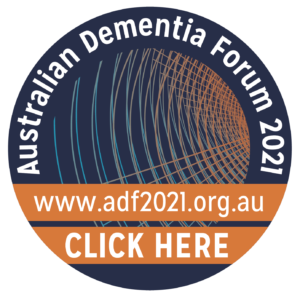 Just over a week to go for the Australian Dementia Forum 2021. We have an excellent line up of keynote speakers as well as 95 presentations, including:
Just over a week to go for the Australian Dementia Forum 2021. We have an excellent line up of keynote speakers as well as 95 presentations, including:
- Panel discussion with rising stars and senior researchers
- Discovery and Diagnosis: Blood based DNA methylation biomarkers of dementia, Peter Fransquet, Monash University; The relationship between amyloid and tau levels and its impact on tau spreading – Vincent Dore, CSIRO
- Treatment: Anti-amyloid drug trials, Prof Michael Woodward, The Austin; Modifiable and non-modifiable dementia risk factors with memory decline and hippocampal volume loss in AB- and AB+ cognitively normal older adults, Emily Rosenich, Turner, Institute for Brain and Mental Health, Monash University
- Prevention: Risk factors and cognitive decline after cardiac procedures in the old: an overview of 3 recent meta-analysis, Erica Ghezzi, University of South Australia; The impact of built and social environmental characteristics on incidence of estimated risk of dementia, Nasser Bagheri, The Australian National University
- Care: Towards better mental health within Residential Aged Care: formulation of a performance measurement tool to aid organisational governance, Rachel Brimelow, UQCCR; National surveillance of clinical quality indicators for dementia care among Australian age care users, Monica Cations, Flinders University
Professor Graeme Samuel’s National Press Club Speech
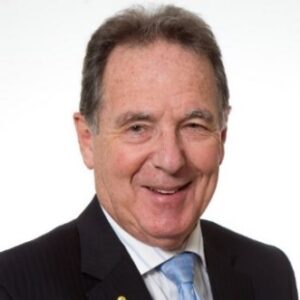
Professor Samuel addressed the National Press Club with a heartfelt tribute to his mother who experienced dementia for 15 years prior to her death. In her honour, Graeme has been motivated to be actively involved in dementia research and care.
As Chair of Dementia Australia and the Australian Dementia Network, Graeme noted that “In 2021, there are an estimated half a million people living with dementia in Australia and around 1.6 million people involved in their care. That number is expected to triple by 2050 unless there is a medical breakthrough …. and more than 2,000 cases of dementia are being diagnosed each week.
He presented the three key areas for meeting the challenges imposed by dementia: research, dementia friendly communities and quality of care.
ADNeT Volunteer Portal reaches 2000 volunteers
Following successful media publicity about upcoming clinical trials in cognitively normal individuals that saw Prof Rowe interviewed on various media outlets in Victoria and elsewhere, over 1990 individuals signed up as volunteers with ADNeT’s volunteer portal.
ADNeT Registry Milestones
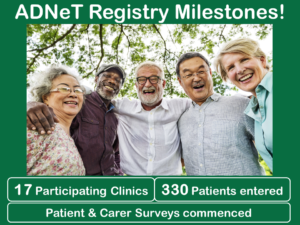
A strong performance by the ADNeT Registry team, who continues to engage with memory clinics and practitioners to establish the national clinical quality registry for dementia.
In a recent report the Australian Institute of Health and Welfare noted that “persistent data gaps in national data limit monitoring and reporting on dementia in Australia” and recommends the establishment of a national dementia registry “that could deliver a world-class monitoring program over the long term”.
Post-diagnostic Support in Australian Memory Clinics
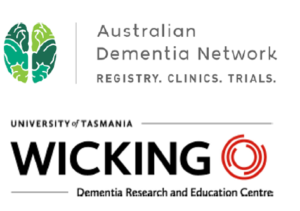
ADNeT Memory Clinics initiative are conducting a research project which aims to improve the support people with dementia and their families receive after dementia diagnosis in memory clinics across Australia.
To achieve this goal, we need to hear the opinions of memory clinic staff about support after dementia diagnosis.
We will be conducting focus groups with small groups of memory clinic staff between May and July 2021. We would like to hear from both health and administrative staff who have any involvement with people with dementia.
Focus groups will be conducted online at a time convenient for you.
If you are interested in participating or if you want to know more about this study, please contact Sladana Pavkovic on 0468 532 399 or email sladana.pavkovic@utas.edu.au
Memory Clinics and Cognitive Decline Assessment Services map published
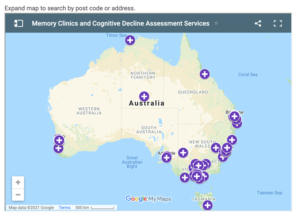
A useful new tool developed by the ADNeT Memory Clinics initiative has been published on the ADNeT website.
The national map of Memory Clinics and Cognitive Decline Assessment Services currently lists 102 clinics, services, and stand-alone practitioners working in the area of cognitive decline across Australia. The map will be updated regularly.
Multidisciplinary clinics, specialist clinics, group private practice and solo practitioners are invited to register to be included in the map by completing a short questionnaire with your clinic details: https://redcap.link/q9oua992.
We hope that this map becomes a useful and comprehensive resource for health professionals and consumers in Australia. To achieve this, we would greatly appreciate your feedback. If you would like to include additional fields of information or change/update your details, please contact adnet.mc@unsw.edu.au.
Lectures and webinars
Upcoming webinars
CHeBA Visiting Lecture Series:
Prof Yaakov Stern, Columbia University- Update on Cognitive Reserve
Wednesday 26 May, 9.00 – 10.00am AEST
More information and registration.
Lovell Lecture Series:
Jane Smith, Dementia Australia – Younger Onset Dementia Family & Relationships
Tuesday 25 May, 10.00am AEST
Proudly sponsored by Dementia Australia and the Royal Melbourne Hospital Neuropsychiatry Unit.
More information and registration.
Australian Younger Onset Dementia Special Interest Group Webinar Series
– Young onset dementia: identifying the sings and diagnosis must do’s
Friday 18 June, 12.30 -1.30pm AEST
More information and registration
– Young onset dementia: maximising independence with quality care
Thursday 15 July, 12.30-1.30pm AEST
More information and registration
Catch-up viewing
ADNeT Webinar: Diagnosing Alzheimer’s disease in the biomarker era: Promises and pitfalls. Prof Ron Petersen. Watch it here.
ADNeT Webinar: Frontotemporal Dementia and Lewy Body Dementia – Current understanding, management and clinical trials. A/Prof Rebekah Ahmend and A/Prof Rosie Watson. Watch it here.
ADNeT Webinar: Screening for trials and memory clinics. Prof Chris Rowe and A/Prof Michael Woodward. Watch it here.
Welcome to the ADNeT-Memory Clinics Team

The ADNeT Memory Clinics initiative welcomes Matthew Paradise and Gemma Jahn to the team.
Matt is an Old Age Psychiatrist and researcher with a particular interest and extensive clinical experience in dementia and cognitive decline. As medical advisor to the Memory Clinic Initiative Matt will provide a clinical perspective to our work and will drive our upcoming webinars and the development of an ADNeT-Memory Clinics peer support program.
Gemma joined us as the new state coordinator in Western Australia and will be the primary point of contact for clinicians in WA. Her unique expertise in the development and implementation of health service policies will serve as a valuable resource in generating meaningful data to drive future policy changes.
On a lighter note
Did you know?
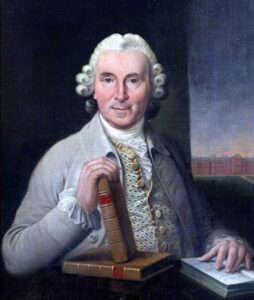
James Lind carried out what is considered the first randomised clinical trial on 20 May 1747. Not a typo. 1747.
James Lind was a Scottish doctor with the Royal Navy. In 1740, Admiral George Anson set out on a mission to capture the possessions of the Spanish Empire in the Pacific. His trip proved catastrophic – out of 1900 men, 1400 had died, most of them allegedly from having contracted scurvy. According to Lind, scurvy caused more deaths in the British fleets than French and Spanish weapons.
Lind thought that scurvy might be cured by introducing acids to the body and recruited 12 men for his trial. He allocated two men to each of six different ‘treatments’. Lind observed that those who received citrus fruits showed “the most sudden and good visible effects”. Can you guess what the other treatments were?
Answer in next newsletter.
